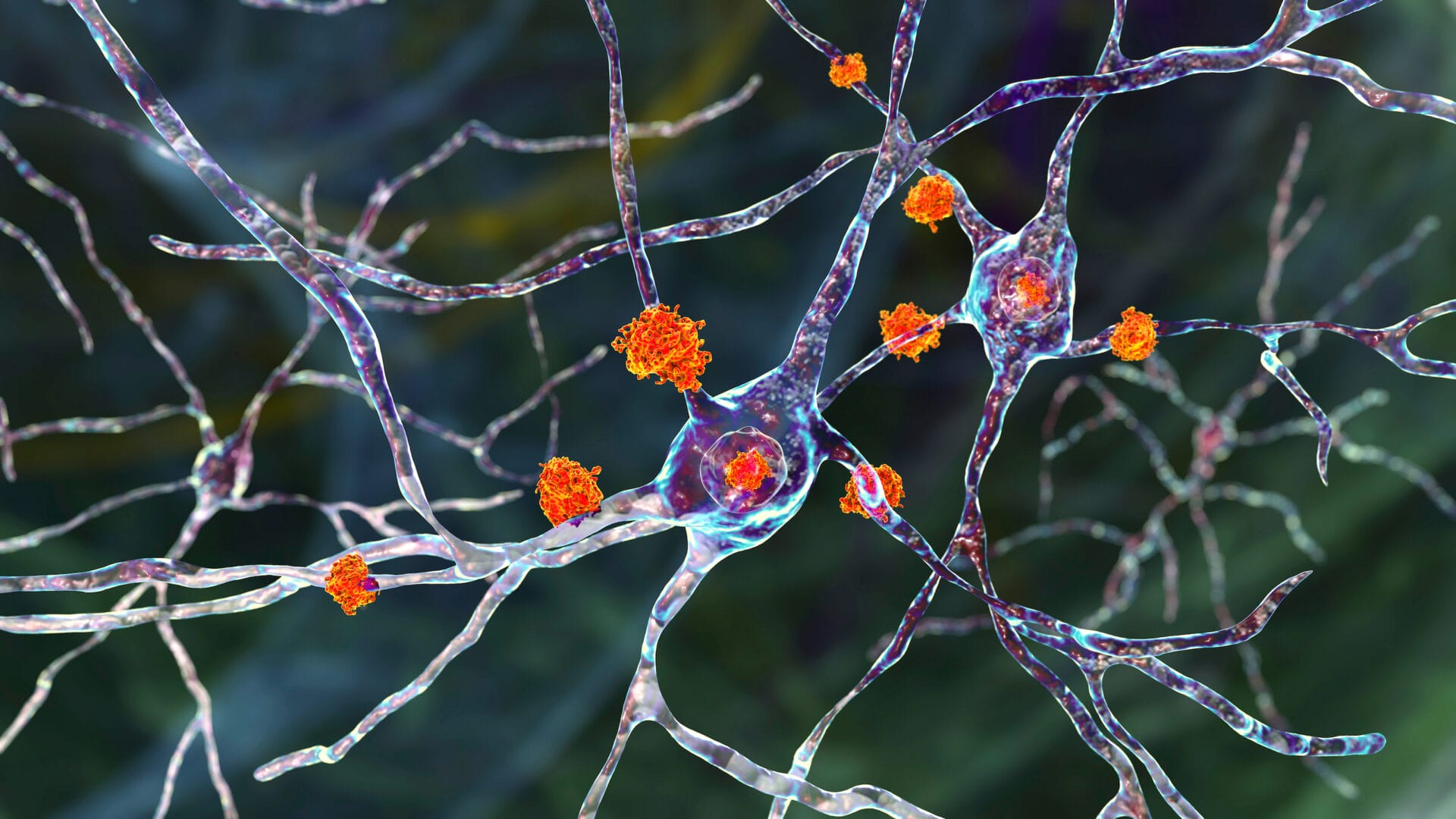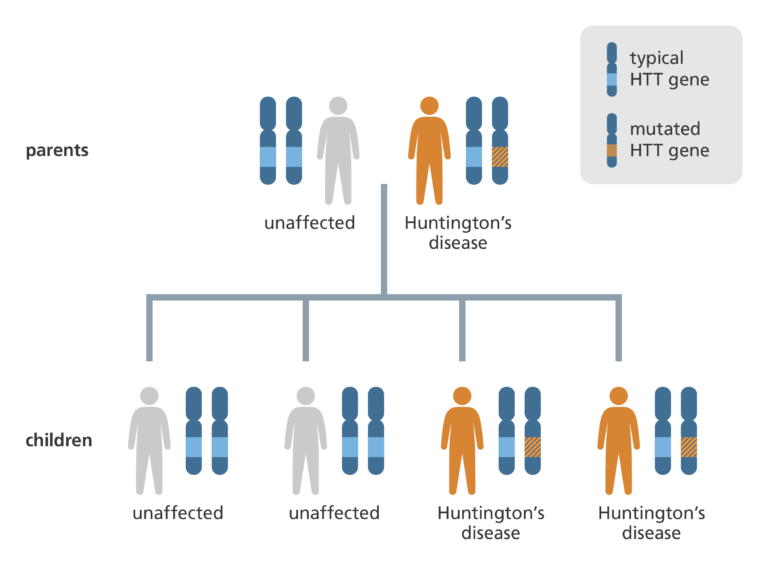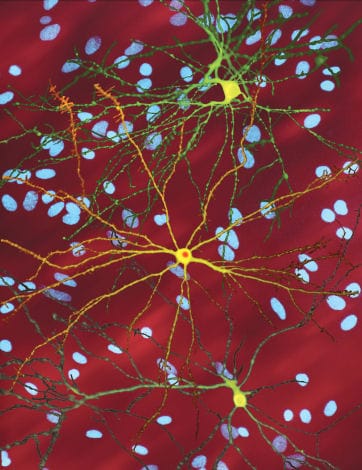What is Huntington’s disease?
Image credit: Shutterstock

Huntington’s disease is a progressive neurodegenerative disorder that usually develops in middle to late adult life.
- Huntington’s disease is a rare inherited condition involving the progressive loss of nerve cells in the brain.
- It’s characterised by dementia of gradually increasing severity, often leading to the need for full nursing care.
- Huntington’s disease occurs in about one in 15,000 people, with symptoms usually appearing between the ages of 30 and 50.
What is Huntington’s disease?
- Huntington’s disease is a genetic condition caused by a mutation in the HD gene (sometimes known as the HTT gene) on chromosome 4.
- The mutation that causes Huntington’s disease is an insertion mutation where the same three bases, CAG, are repeated many more times than usual at the end of the gene. This is known as a CAG trinucleotide repeat expansion.
- People who don’t have Huntington’s disease usually have between 10 and 35 CAG repeats on their HD gene. In people with Huntington’s disease, this section can be repeated up to 200 times.
- It is an autosomal dominant condition, which means it develops with a single mutated copy of the gene.

What is the biology of Huntington’s disease?
- The HD gene codes for a protein called huntingtin. This is found in many tissues across the body, in the highest levels in the brain.
- The function of the huntingtin protein isn’t clear, but we know it’s essential during development, especially in nerve cells.
- The CAG trinucleotide repeat expansion leads to a longer version of the huntingtin protein. It then gets chopped into smaller, toxic fragments that accumulate together and disrupt the normal functions of nerve cells.
- Generally, the greater the number of repeats, the earlier the onset of the disease and the more severe the symptoms.

What are the symptoms of Huntington’s disease?
- Symptoms are both physical and psychological and vary between people with Huntington’s disease.
- Early symptoms may include slight uncontrollable muscle movements and clumsiness. These may be accompanied by short-term memory loss and the inability to concentrate, as well as mood swings, depression and uncharacteristic aggressive behaviour.
- Symptoms become more severe as the disease progresses. For example, involuntary movements become more pronounced, and the individual might experience weight loss or develop difficulties with speech and swallowing.
- Muscular difficulty in clearing the lungs can increase the risk of pneumonia and other lung infections.
- Huntington’s disease is a fatal condition with an average life expectancy of 10 to 30 years after symptoms develop.
How is Huntington’s disease diagnosed?
- Huntington’s disease is an inherited condition, so tests are sometimes offered to people with a history of it in their biological family.
- Genetic testing can identify whether a person has the mutated HD gene, usually performed with extensive genetic counselling to help them understand what their results mean.
- Some people might choose to undergo prenatal testing to understand whether their baby carries the mutated HD gene.
- As well as genetic tests, people can undergo neurological testing to assess features like reflexes, muscle tone and strength, vision, hearing and balance.
- Some people are referred for psychiatric evaluation to assess factors like their emotional state, behaviour and mood.
- Finally, they may undergo tests that examine their brain, such as brain imaging tests (like MRI and CT scans) or an electroencephalogram if they have experienced seizures, to look at the brain’s electrical signals.
How is Huntington’s disease managed?
- People with Huntington’s disease may receive treatment to manage their symptoms and improve their quality of life.
- For example, certain drugs can help to control involuntary movements, mood swings and depression. Speech therapy can also help with both speech and swallowing.
- A well-balanced diet can help to prevent weight loss and may also have a positive impact on other symptoms.